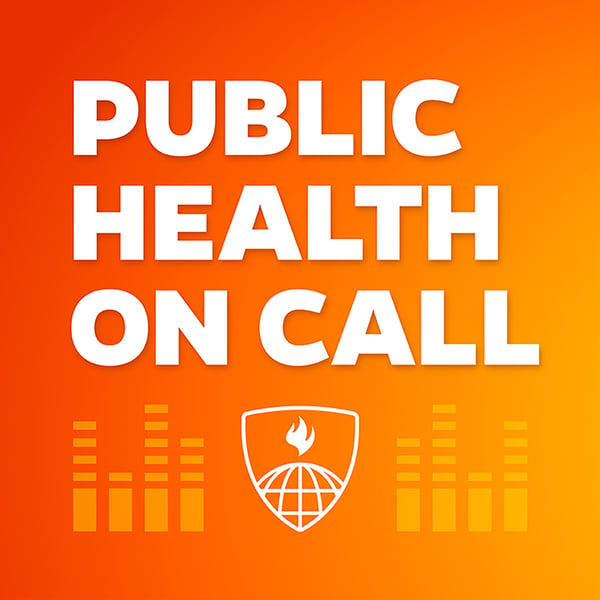936 - The New Reality Facing Medicare, Medicaid, and the ACA
Public Health On Call
The Johns Hopkins Bloomberg School of Public Health
4.8 • 620 Ratings
🗓️ 21 August 2025
⏱️ 12 minutes
🧾️ Download transcript
Summary
About this episode:
The reconciliation bill passed by Congress in July is set to unravel key aspects of the Affordable Care Act that have expanded health coverage to millions of Americans. In this episode: One of the architects of the ACA, Liz Fowler, outlines how work requirements, truncated enrollment periods, and higher premiums will change health care for Americans on Medicaid and Medicare and for those buying coverage through their state’s marketplace.
Guest:
Elizabeth Fowler, PhD, JD, is a distinguished scholar in Health Policy and Management at the Johns Hopkins Bloomberg School of Public Health and previously served as the director of the Innovation Center at the Centers for Medicare & Medicaid Services.
Host:
Lindsay Smith Rogers, MA, is the producer of the Public Health On Call podcast, an editor for Expert Insights, and the director of content strategy for the Johns Hopkins Bloomberg School of Public Health.
Show links and related content:
-
How New Federal Legislation Will Affect Health Care Costs and Access for Americans—Johns Hopkins Bloomberg School of Public Health
-
When Do the One Big Beautiful Bill Act’s Health Care Provisions Go Into Effect?—Center for American Progress
-
Health Provisions in the 2025 Federal Budget Reconciliation Law—KFF
Transcript information:
Looking for episode transcripts? Open our podcast on the Apple Podcasts app (desktop or mobile) or the Spotify mobile app to access an auto-generated transcript of any episode. Closed captioning is also available for every episode on our YouTube channel.
Contact us:
Have a question about something you heard? Looking for a transcript? Want to suggest a topic or guest? Contact us via email or visit our website.
Follow us:
-
Here's our RSS feed
Note: These podcasts are a conversation between the participants, and do not represent the position of Johns Hopkins University.
Transcript
Click on a timestamp to play from that location
| 0:00.0 | Welcome to Public Health On Call, a podcast from the Johns Hopkins Bloomberg School of Public Health, |
| 0:05.8 | where we bring evidence, experience, and perspective to make sense of today's leading health challenges. |
| 0:16.1 | If you have questions or ideas for us, please send an email to public health question at jhhhu.edu. |
| 0:23.7 | That's public health question at jhhhu.edu for future podcast episodes. |
| 0:31.4 | It's Lindsay Smith Rogers. |
| 0:33.4 | Today, a look at what the budget reconciliation bill will mean for the Affordable Care Act. |
| 0:39.0 | Liz Fowler is an expert in federal health policy and a Bloomberg distinguished scholar at Johns Hopkins. |
| 0:44.8 | She has worked at the Centers for Medicare and Medicaid Services, and prior to that, she served on the Senate Finance Committee playing a major role in the drafting and passage of the Affordable Care Act. |
| 0:54.8 | Let's listen. |
| 0:55.9 | Liz Fowler, thank you so much for joining us on Public Health on Call. |
| 0:58.6 | Would you tell us a little bit about your work and your background? |
| 1:01.9 | Thanks, Lindsay. |
| 1:02.8 | It's great to be here. |
| 1:04.3 | I am currently a distinguished scholar at the Bloomberg School of Public Health at Johns Hopkins |
| 1:08.4 | and also with the Carey Business School before this. I was leading the CMS Innovation Center. That's the Innovation Center that's part of the Center for Medicare and Medicaid Services. But I think the reason we're talking today is because during the drafting of the Affordable Care Act, I was the chief health Council of the Senate Finance Committee, which had |
| 1:27.7 | jurisdiction over Medicare, Medicaid, and many other policies that were part of the ACA that's |
| 1:33.5 | become known as Obamacare. And now we'll be undergoing some changes as a result of the |
| 1:38.4 | legislation that just passed. That is exactly what we want to talk to you about today. |
| 1:42.8 | There's a lot that we're still unpacking about budget reconciliation, particularly on health care and the ACA. But to start us off, what is the Affordable Care Act? What did it do? The ACA was really an attempt at covering the uninsured. So our uninsured rate, the people without health insurance coverage in the U.S. was about 18 percent in 2009, 2010, when we're not going to be able to be in the insured rate, the people without health insurance coverage in the U.S. |
| 2:01.5 | was about 18% in 2009, 2010 when the ACA was drafted and when it passed. And the ACA, instead of |
| 2:10.6 | creating a whole new health care system, sought to build on the existing health care system, |
| 2:15.1 | as messy and complicated as it is, tried to build on the pieces |
... |
Transcript will be available on the free plan in 22 days. Upgrade to see the full transcript now.
Disclaimer: The podcast and artwork embedded on this page are from The Johns Hopkins Bloomberg School of Public Health, and are the property of its owner and not affiliated with or endorsed by Tapesearch.
Generated transcripts are the property of The Johns Hopkins Bloomberg School of Public Health and are distributed freely under the Fair Use doctrine. Transcripts generated by Tapesearch are not guaranteed to be accurate.
Copyright © Tapesearch 2025.

